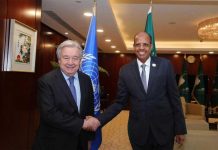Africa-Press – Mauritius. The two open letters of Mr Malcolm de Chazal to His Excellency the Governor have set the ball rolling. People have started talking about the rights of civil servants to engage in public activities.
All that is generally known today about the part that civil servants can play in public life may be summed up as follows: Civil servants are allowed to participate in non-political activities but the political sphere is taboo to them.
It is easy to comprehend such a broad principle in theory but in practice it gives rise to innumerable difficulties because not infrequently it becomes quite difficult to draw a line between what is political and what is not. Borderline cases are legion.
Is it indulging in political activity when Mr Malcolm de Chazal, the civil servant, writes on the visit of Princess Margaret to Mauritius? Is it forbidden for civil servants to express their views on our Income Tax in the way N.
M. U. recently wanted them to do? The official position is far from being clear. Had it been clear N. M. U. would not have asked to clear it up in vain.
He asked the P. R. O. to throw some light over the matter to enlighten all concerned. We wonder if the P. R. O, or any other authority including the Secretariat, can offer any cut and dried answer — so fluid this all-important matter is.
But an answer has to be found. There must be a way out somewhere. If we expect civil servants to lead the life of normal citizens, we cannot afford to leave them in a perpetual state of uncertainly. There has been a tremendous political awakening in Mauritius since 1948 when the new constitution came into force.
When political parties loom so large on the political scene and when even the man-in-the-street is so alive to politics, do we expect the man-in-the-office to be indifferent to it? If not, shouldn’t he be told what part he has to play?
Since the institution of village councils, civil servants are playing quite a prominent part in the public life of villages through those councils. They are allowed to stand as candidates, campaign and speak from public platforms.
But they are still way form the township Boards and Municipality. Hoping that the position of civil servants as regards politics will be clearly defined by Government in a near future, we give below an account of an attempt made in England to tackle the same problem.
* * * A committee of ten members was appointed in 1948 having for chairman Mr J. C.
Masterman, O. B. E. It was called the Committee on the Political Activities of Civil Servants. The committee presented its report to the then Chancellor of Exchequer, Rt.
Hon Sir Stafford Cripps, who in turn presented it to Parliament in June 1949. It is a very interesting and thought-provoking report. We wish to take the liberty of quoting freely from it in order to give a good picture of the situation.
The terms of reference of the committee were: “To examine the existing limitations on the political activities (both national and local) which may be undertaken by civilian Government staffs, and to make recommendations as to any changes which may be desirable in the public interest.
” The political activities with which the committee concerned itself, have been briefly summarized under the following headings:
(1) Parliamentary candidature and service;
(2) Other political activities in the national field, both party and non-party in character, by
(a) individual civil servants;
(b) members of civil service staff associations;
(3) Participation in local government, especial membership of local councils. In the course of the enquiry the committee had two overriding principles in view. Says the report:
“In framing our recommendations we have constantly tried to find a balance between these two conflicting principles:
(i) In a democratic society it is desirable for all citizens to have a voice in the affairs of the State and for as many as possible to play an active part in public life.
(ii) The public interest demands the maintenance of political impartiality in the civil service and of confidence in that impartiality as an essential part of the structure of Government in this country.
After hearing official and non-official witnesses, representatives of the civil service and individual civil servants and after scrutinizing memoranda submitted at home as well as from overseas, the Committee drew up its report.
For More News And Analysis About Mauritius Follow Africa-Press







